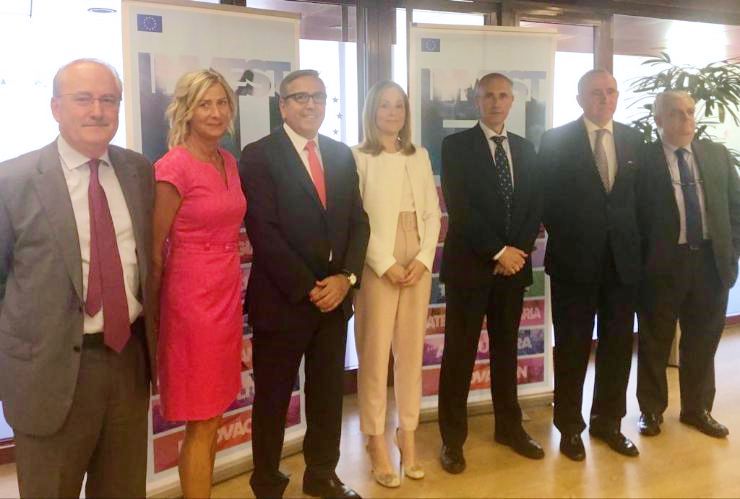EU commits to boosting economy by investing in efficient transport
On Monday 8 July at the seat of the European institutions in Madrid, the European Commission, European Investment Bank (EIB) and Instituto de Crédito Oficial (ICO) explained one of the Investment Plan for Europe’s key priorities: its commitment to transport to drive sustainable economic growth.
The various experts present at the event highlighted the fact that the Investment Plan for Europe was a significant opportunity to foster innovation and entrepreneurship, and to boost competitiveness and jobs.
Institutions and companies related to the transport sector attended a seminar entitled Investment Plan for Europe – Transport, a major commitment for growth today in Madrid. “The Investment Plan for Europe presents an opportunity to invest in transport, contributing to the EU’s job creation and sustainable development objectives,” said Head of the European Commission’s Representation in Spain Francisco Fonseca during the meeting. Fonseca also explained the role of the European Institutions in the Investment Plan for Europe.
EIB Vice-President Emma Navarro also attended the information event, emphasising “the positive impact this initiative is having on the Spanish economy. Spain is the third biggest beneficiary of EIB Juncker Plan financing in the EU, with almost 130 projects approved that are driving innovation, climate action and the development of cleaner transport in our country.”
ICO Chairman José Carlos García de Quevedo recognised “the function it serves as a catalyst for EU funding for Spanish businesses” as one of the public sector Bank’s strategic priorities. “In concrete terms, ICO has provided €1.713bn of financing to Juncker Plan-supported projects.”
The second part of the seminar included contributions from representatives of benchmark companies in the transport sector and financing beneficiaries of the Plan. Speakers included Jesús Sierra, EMEA Manager for Acciona Infrastructure; José Leo Vizcaíno, Financial Director for Aena; Pablo Escudero Pérez Head of the Economic-Financial Division of Metro de Madrid; and Emilio García, Chief Innovation Officer for Talgo. The seminar was moderated by Francisco Aranda, President of the Logistics and Transport Business Organisation of Spain (UNO) and Vice-President of the Madrid Confederation of Employers and Industries (CEIM-CEOE). The experts detailed the evolution and scope of #InvestEU and the competitive advantages.

Spain, third biggest beneficiary in the EU
Since the Juncker Plan’s launch in July 2015, the EIB has approved 128 operations in Spain for total financing of over €8.7bn, expected to mobilise almost €43.5bn in investment. Spain is the third biggest beneficiary of financing approved under the Investment Plan for Europe in the EU, with calculations indicating that these funds will help support the investment projects of 131,000 Spanish companies.
A number of Spanish transport sector businesses have received Juncker Plan financing: Metro de Madrid was granted €135m, Talgo received €30m and Aena was provided with €400m for investments in improving airport security equipment and €86m to improve airport energy efficiency. Among other projects, the Investment Plan for Europe has also financed the renewal of the urban bus fleets of Palma de Mallorca and Valencia by providing €30m and €39m, respectively.
At European level and by sector, 33% of the investment mobilised via EIB Investment Plan for Europe financing has gone to SMEs; 22% to research, development and innovation (28.7% in Spain); 19% to energy; 11% to digital products; 7% to transport; and 4% to social infrastructure, environment and energy efficiency (14.5% in the Spain).
With the approval of over 1 000 operations in the 28 Member States so far, the Investment Plan for Europe has exceeded the initial objective of EUR 315bn in mobilised investment that was set at its launch in July 2015. The financing approved to-date is expected to mobilise over €408bn of investment. The level of success achieved led to the decision to expand the Plan’s financing capacity, with the goal of mobilising €500bn by mid-2020.





























